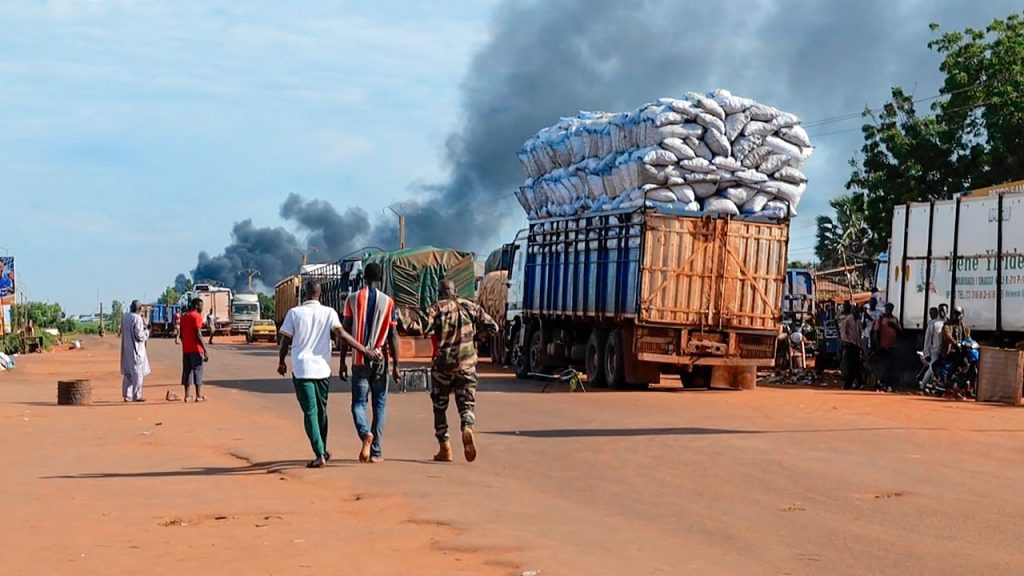Islamic militants launched a violent attack on a military training camp and other locations in Mali’s capital, resulting in deadly gun battles and the temporary closure of a nearby airport. The militants attempted to infiltrate the Faladie gendarme school in Bamako, prompting government troops to respond and neutralize the attackers. The attack resulted in loss of life and material damage, with at least 15 suspects arrested. Officials did not provide specific details on casualties but mentioned that there were significant human and material losses.
The al-Qaida-linked militant group JNIM claimed responsibility for the attacks, posting videos on their website Azallaq showing fighters setting a plane at the airport on fire. The group boasted of causing major human and material losses in the attacks. Following the explosions and smoke rising from the outskirts of the city, Mali’s authorities closed the airport temporarily due to the exchange of gunfire. The U.S. Embassy in Bamako advised its staff to stay at home and avoid the roads as a security precaution.
Mali, Burkina Faso, and Niger have been grappling with an insurgency for over a decade, involving armed groups affiliated with al-Qaida and the Islamic State. Recent military coups in these countries led to the expulsion of French forces, with Russian mercenary units providing security assistance. Colonel Assimi Goita, who came to power in Mali, has faced challenges in dealing with escalating attacks by jihadist groups. Attacks in central and northern Mali have been on the rise, including the ambush of a convoy of Russian mercenaries by al-Qaida militants in July.
The attacks in the capital of Bamako are relatively uncommon, with the latest incident aimed at demonstrating the militants’ ability to strike the south and the capital. The militants seemed to be targeting military installations rather than random attacks on civilian targets. This latest attack showcases JNIM’s capacity to mount large-scale operations and indicates a shift towards focusing on military targets. The assault serves as a reminder of the persistent threat posed by extremist groups in the region and the ongoing challenges faced by security forces in maintaining stability.
In 2022, gunmen attacked a Malian army checkpoint outside the city, resulting in casualties, while a 2015 incident saw an al-Qaida linked extremist group targeting a hotel in Bamako. The recent attack underscores the continued presence and capability of militant groups such as JNIM to carry out coordinated and impactful operations. As the security situation remains volatile in Mali and its neighboring countries, efforts to counter the insurgency and strengthen security measures are crucial to safeguarding the population and maintaining stability in the region.


